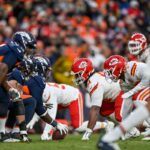Pop Autopsy: Radiohead. Everything in its right place?
“People love Bruce Springsteen unconditionally too and when I heard one of his recent albums, I couldn’t believe how bad it was. Yet, you never hear a bad word said about Bruce. Radiohead is the same way and Hail to the Thief was their turd in the punchbowl that everyone kept drinking out of.”
Radiohead is the Robert De Niro of music. Achieving early acclaim followed by some mid career masterpieces, followed by shifting into cruise control and cranking out the same mediocre thing over and over because no one demanded more from them. This, believe it or not, is an unpopular sentiment.
Try to debate or broach that topic, and Radiohead’s karma police (I know, good one) will show up en masse to discredit and condemn your unsavory opinion. Certainly one of the more unpopular things you can claim is that you don’t “like” Radiohead or you don’t “get” Radiohead. People who think they know more about music than you will mobilize to scoff, call you names and generally think you suck. And they’re right in that respect. Radiohead is one of the greatest bands of all time and while I have issues with some of their later work, I don’t object to the band’s changes in musical direction. But try and bring up that they lost a step here and there and you may have well suggested that “Osama Bin Laden may have been on to something.”
And when a band or a person can do no wrong, you should look very close because there are certainly some big cracks being spackled over by the fans. Radiohead are post alternative rock Gods who smashed music conventions and kept to their own path, blissfully unaware that they were heading straight into the pantheon of one of greatest musical groups of all time. But the inability of the die-hard fans to admit that they may have had a misstep or two late in their career seems counterintuitive to the revolutionary music they created.
It’s not really fair to say they suck now because they are still producing music that is head and shoulders above anything being made today. But they did decline as their following grew more rabid. And while that’s perfectly natural for a band – it’s ok, it happens to the best of them – it’s the fans of said musical group who can’t admit their glory days are long done who need the wake up call.
Radiohead’s discography is a swashbuckling adventure about a band that enjoyed immediate success followed by an escalating aptitude for crafting brilliant yet skewed pop music only to blow it all up at the height of their popularity, somehow making it better. All the while collecting more and more people to their cause like a lint roller going over a pair of my pants.
Pablo Honey is a decent debut, but as we’ve seen from most bands (especially British ones) getting out of the gate hot never seems to be the recipe for longevity. Aside from the radio friendly hit “Creep” the album is decent but mostly forgettable. But you can hear great examples of where Thom Yorke’s voice and the band was already trying to go.
So it wasn’t until they introduced their sophomore effort The Bends that people started to realize Radiohead may not just be a one-hit wonder, spun off like sparks from the whirling Brit Pop machine going on at the center of music at the time. Like their countrymen Blur’s second album, The Bends is a beautiful record that out-muscled their early success by showcasing the elegant songwriting and deft musicianship the band was capable of. Everyone who abandoned them after “Creep” was missing something special, not only because there are many hints to where they were about to take their craft, but because every song on The Bends is a rock solid smash. I could do 500 words on the guitar feedback near the end of “Just” alone.
The Bends may have been great, but when OK Computer was released in 1997, it not only catapulted Radiohead into the realm of superstardom, it actually changed the world of music forever. Never before had we heard such an astounding blend of electronic sounds and guitars melded with the same brilliant song writing we had come to expect. OK Computer changed the way we thought, listened and lived. It was just that important. If the Velvet Underground was responsible for launching a thousand bands, OK Computer was responsible for rewiring our brains into thinking what a modern magnum opus was supposed to sound like. It changed music so drastically, only Miles Davis could appreciate just what Radiohead had accomplished. And I guess, the band’s swelling legions of fans. And if you don’t believe OK Computer is a certified master piece, just ask the hundreds of hack musicians who tried to incorporate some of its sound into their albums around that time. OK Computer was everywhere and its vapor trail can still be seen in the sky today.
And this is usually where a band will drop off creatively because they have nowhere else to go. Or they settle in to the niche they dug for themselves and they live out the rest of their days regurgitating it to their clueless fan base: *cough cough, U2* But Radiohead took it up several more notches when no one thought they could as it released Kid A in 2000. Kid A was as if they disassembled OK Computer, shredded it, digitized the pieces and set the findings on fire as they jammed over the ashes. It was unlike anything they had done and was unlike anything we had heard before. It was weird, hard to listen to at first and a completely glorious achievement. Listen to “How to Disappear Completely” on a set of headphones and if you don’t feel yourself slipping into another dimension you can have your money back.
And that’s where Radiohead hit its zenith.
Amnesiac was released less than a year later and seemed to be collection of outtakes from Kid A. The album was recorded during the same sessions or around the same time as Kid A but Radiohead claimed it was a completely new set of recordings and a “different take” on the previous record. But there wasn’t too much differentiating the two albums and had they been released together as a double album you wouldn’t have know the difference. So much so, there’s even a different version of a song on Amnesiac from Kid A. In contrast, David Bowie recorded Ziggy Stardust and Aladdin Sane at nearly the same time and they sound radically different in many ways. Maybe the last few years took their toll, but Radiohead seemed to be on autopilot for the first time in its career. And while there are some good tracks on Amnesiac (“Knives Out” is one), the overall sound set off several warning (morning) bells for anyone who was paying attention.
But not many were paying attention.
Fans were so infatuated with Radiohead at this point, it never occurred to them that they could put out a stinker. And since nothing they could do was wrong, any production from the band was accepted like a gift from heaven.
And then Hail to the Thief happened. Hail to the Thief is not only Radiohead’s worst album, it’s the worst album released in a several year span. Or so I thought. In researching this article, I listened to every studio album Radiohead released and took on the daunting task of re-listening to the album that had soured Radiohead’s sweet, sweet taste for me. Upon listening to Hail to the Thief after nearly 10 years since its release, I had softened toward it and found some good in its once unbearable tracks. Maybe I’m getting older and my testosterone levels aren’t what they should be, but the same violent reaction I had to it those many years ago, wasn’t there. But it’s still the band’s worst album. And that would be fine if the hard core Radiohead fans would admit it but as I’ve discovered, when a band’s fan base becomes rabid, they don’t see things clearly. People love Bruce Springsteen unconditionally too and when I heard one of his recent albums, I couldn’t believe how bad it was. Yet, you never hear a bad word said about Bruce. Radiohead is the same way and Hail to the Thief was their turd in the punchbowl that everyone kept drinking out of.
The only thing that saved Radiohead from fading away at this point for me was a brilliant gimmick and a great album. The band famously released In Rainbows by themselves digitally in 2007 with the asking price of “whatever you want to spend.” Well, burned by Hail to the Thief, I paid nothing for In Rainbows because I figured Radiohead owed me one. In Rainbows is a damn fine album though with some very good tracks, and is a huge step forward from Hail. There are a lot of good songs on this their seventh studio album, but “House of Cards” and “Weird Fishes” are two very different tracks, that are unlike anything the band has done. They resonate with the creativity that first made me fall in love with the band in the first place.
And to put a bow on the band’s discography, if you listen to Radiohead’s last album, King of Limbs, it seems like they are again spinning their wheels a bit. Musically it sounds like a mix of the last couple of records but without anything that stands out of the pack. And while that’s fine for a band that has been revolutionizing music for the last 20 years, it’s also ok to point it out.
So please Radiohead nerds, don’t lump me in with the cretins who can’t understand what Radiohead is all about when I criticize some of the band’s later, shoddier output. I still have great reverence for a group that changed the way I listen to music and would never cast aside the highs they’ve achieved for a few scattered lows. Radiohead may be the Robert De Niro of music, but De Niro had Raging Bull, Godfather II and Goodfellas. Yes, he did do Rocky and Bullwinkle and several Fockers movies, but Radiohead has “Fake Plastic Trees” on their resume eclipsing any damage done by Hail to the Thief. It’s good company if you can keep it. Everything in its right place I guess.





